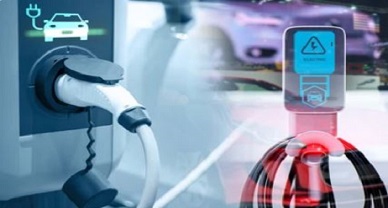Import Tax in the New Ev Policy, 2024
INTRODUCTION
When we think of future we think of Renewable energy and a more sustainable future. The future where India slowly transitions from fossil fuel powered vehicles to the vehicles which can run on electricity, which will result in reduced Pollution levels and to achieve this goal the government of India has come up with a new EV policy to ensure that foreign players as well as Indian companies could prosper and flourish in India, the main agenda of this policy being energy efficiency and reduction in carbon emissions.
THE LEGAL FRAMEWORK OF INDIA’S EV POLICY
But one may think what is the need for electric vehicles now raise the objective of the government why do it feels the need to transition to electric vehicles.
One simplistic reason might be to fulfil the promises done in the Paris agreement 2015[1] and the national goals outlined in the National Electric Mobility Mission Plan 2020[2], but this is not the only reason why the Ministry of heavy industries is looking and working towards boosting manufacturing of electric vehicles in India
- Objective – The main objective of the new ev policies is to allow the global ev manufacturing players to come and invest in India while also ensuring that the Indian players in the ev market such as Mahendra and Mahindra and Tata electric Are allowed to grow in coexistence
- Beneficiaries – The policies presented by the government primarily target global ev manufacturers particularly companies like Tesla BYT and vinfast the goal is to encourage these companies to come and set up their plans in India and invest in India and generate employment for Indians.
THE KEY PROVISIONS OF THE NEW EV POLICY
These new policies have created a new landscape for the global players to do their business in India while attaching a legal condition to ensure compliance and maximum Domestic benefit
Import tax reduction-
These new import tax reductions would result the larger market of ev imports as the previous import duty on ev’s range from 70% to a staggering 100 percent[3], which is now reduced to 15% this reduction will result in demolishing the barriers for foreign manufacturers to enter the Indian market.

Conditional benefits
But these tax benefits under the new policy are conditional as the government Will allow lower import taxes on certain electric vehicles for companies that have committed at least 4150 crore rupees in investments which roughly amounts to$500 million[4]
In addition to which the set company has to build a domestic manufacturing facility in India[5]. The company will be granted a three year to establish local manufacturing facilities to manufacture electric vehicles ensuring that at least 25% of the components used in the electric vehicle are domestically produced and it further states that this number of 25% should reach the level of 50% by the 5th year of the company’s operation in India[6].
The policy further states that businesses meeting the criteria will be permitted to import up to 8000 electric vehicles yearly during the course of five years.[7]
But an important catch to understand is that all these policies are only applicable for models which are worth more than 35000 dollars.[8]
ARE THE COMPANIES ALLOWED TO IMPORT FOREVER UNDER THESE POLICIES?
And a simple answer to this question is a no, any company that wishes to avail the benefits of the new policy is only allowed to import till the initial five years of its operations after which it is required to create its cars in India.
It is important to note that these policy changes are only affecting the vehicles which Crum pre-assembled from outside the country where according to the previous laws if the price of the vehicle was more than $40,000 it attached a tax of 100 percent whereas if the vehicle was priced below 40,000 it was subjected to a 70% tax.[9]
Whereas, the complete knock down unit which are completely assembled in India after the import of its parts already had a 15% duty on them.
New policies are designed in such a manner that if a company imports a car costing $35,000 and commits to the minimum investment of 5000 million dollars it can import up to 25,974 cars over the course of five years
However, If the investment amount is increased to 7801 million or higher the company may even import 40,582 cars or vehicles according to the officials.
The maximum number of EV’s allowed to be imported is capped at 8000 units per year.
Will Chinese company also be allowed to participate and invest in India?
As per the official guidelines stated in the new policies, “Regardless of their origin, they can partake and seek incentives under the scheme as long as they commit to a minimum investment and adhere to the prescribed policy guidelines”.[10]
However, there is a catch the 2022 amendments to the FDI policies[11] companies in the country that share land borders with India must obtain an additional government Permission and as we know India shares its borders with China Bangladesh Pakistan Bhutan Nepal Myanmar and Afghanistan hence the Chinese companies will have to seek a primary permission from the Indian authorities before entering the Indian marketplace.
TESLA’S OBLIGATION
For Tesla to being able to sell and function in India Its electronic vehicles it is required to set up a manufacturing plant in India. Tesla needs to comply with Indian regulatory policies including environmental regulations and industry standards to fully benefit from the policy
VIN FAST’S LEGAL STRATEGY
The Vietnamese Automobile company has already taken its initial steps and committed a significant investment. As it has committed to invest in the state of Tamil Nadu to align itself with India’s legal requirement for foreign investment
How is the investment committed insured?
After all this back and forth of creating new restrictions and removing the old ones a question which is very basic in nature can arise in anyone’s mind but how will the government of India ensure the companies actually invest in the country and move ahead with their policies for justice setting up of new manufacturing facilities in India
The government has established that all the tax benefit that a company may receive due to these new policies, the investment commitment made by the companies must be backed by a bank guarantee in lieu of the custom duty forgone. [12]
In case of non-achievement of minimum investment criteria refined under the scheme guidelines the bank guarantee will be invoked which in simpler word means just in case if a company fails to fulfil its commitment and obligations the government has made itself entitled to seize all the money which was kept in the bank as lieu as penalty.[13]
RATIONAL BEHIND THE POLICY
Equation of this policy clearly indicates that India India is working towards a Mult strategic legal approach but it is trying to achieve multiple objectives while ensuring harmony between them through this policy India establishes that it wants to increase competition the Indian marketplace while ensuring that Indian companies should have a breathing space to grow. It also establishes that the government of India wants to work towards a plan where India can become a leading manufacturing hub as we see throughout its different policies India is pushing towards creation of manufacturing factories in India.
LEGAL JUSTIFICATION FOR HIGH VALUE VEHICLE FORCE
This decision to limit the import by creating a parameter where only high value vehicles are allowed the tax benefit creates an atmosphere where the Indian government is trying to ensure that Indian companies in the electrical vehicle market thrive and survives.
Has government of India has decided to leave the below $35,000 or ₹29,00,000 lakh PRICE bracket completely for the Indian manufacturers such as Tata Motors and Mahindra
This approach is supported by the competition loss principle which aims to maintain fair and competitive market environment while encouraging innovation and consumer choices
LEGAL CONFIDENCE IN MARKET COMPETITION
These policies establish that government is confident and positive that the impact of noble players entering the Indian market will push the domestic players to come up with new standards and bring more innovation in their work as now they have to compete at global players in the $40,000 above market.
This will ultimately benefit customers as the overall competition would result in better product for the Indian customers and consumers but the government needs to ensure that it should suppress any anti-competitive practises by either the foreign or the domestic parties as this shall be a tough task because when it comes to the context of who is incapacity to create a monopoly we know that domestic companies have years’ worth of experience in India and will not lose their market share without a fight. Just as many foreign companies which are notorious for capturing the larger masses and suppressing their competition in hopes of creating a monopoly.
STRATEGIC LEGAL IMPORTANCE
Strategically speaking This new policy is a perfectly right step in the larger goal of creating a sustainable future it is also incoherence with legal and strategic framework for achieving the goals of 30% ev market share by 2030 As such targets have been insured in various government policies and legal commitments. As these policies will help India reach international goals such as goals set in Paris agreement 2015.
CONCLUSION
The new ev policies brought by the government of India, focuses on stringent legal conditions and modifying of the tax cuts, this new policy represents Nature of the government of India towards the newly rising electric vehicle industry. It establishes that the government of India seeks to make India a global manufacturing hub and allow global companies to trade in India while ensuring that the domestic companies have a fair chance at growth.
The ev market is a sustainable industry with high growth potential for the future the policy seeks to create a legal framework for this market which is robust and India first in nature. As India work towards its school of reaching 30% EV market share by 2030, The legal implications of this new policy will result in establishing of new legal policies of the future of India in regards to sustainable development an international fair competition as the legal implications of policies like this will play a critical role in shaping India automotive industry sectors future.
Author:– Sanjana Priya, in case of any queries please contact/write back to us at support@ipandlegalfilings.com or IP & Legal Filing.
[1] UNDP Climate Promise, https://climatepromise.undp.org/what-we-do/where-we-work/india (last visited Aug. 10, 2024).
[2] Ministry of Heavy Industries, https://heavyindustries.gov.in/sites/default/files/2023-07/NEMMP-2020.pdf (last visited Aug. 10, 2024).
[3] India Briefing, https://www.india-briefing.com/news/indias-new-ev-policy-to-attract-investments-boost-imports-31667.html/ (last visited Aug. 10, 2024).
[4] NDTV, https://www.ndtv.com/india-news/elon-musk-tesla-india-plans-import-tax-cut-in-governments-new-ev-policy-teslas-india-plans-boosted-5244061 (last visited Aug. 10, 2024).
[5] NDTV, https://www.ndtv.com/india-news/elon-musk-tesla-india-plans-import-tax-cut-in-governments-new-ev-policy-teslas-india-plans-boosted-5244061 (last visited Aug. 10, 2024).
[6] NDTV, https://www.ndtv.com/india-news/elon-musk-tesla-india-plans-import-tax-cut-in-governments-new-ev-policy-teslas-india-plans-boosted-5244061 (last visited Aug. 10, 2024).
[7] Reuters, https://www.reuters.com/business/autos-transportation/india-approves-policy-boost-e-vehicle-manufacturing-2024-03-15/ (last visited Aug. 10, 2024).
[8] Reuters, https://www.reuters.com/business/autos-transportation/india-approves-policy-boost-e-vehicle-manufacturing-2024-03-15/ (last visited Aug. 10, 2024).
[9] Reuters, https://www.reuters.com/business/autos-transportation/india-approves-policy-boost-e-vehicle-manufacturing-2024-03-15/ (last visited Aug. 10, 2024).
[10] https://www.business-standard.com/industry/auto/govt-approves-new-ev-policy-bolstering-tesla-s-market-entry-plans-124031500469_1.html
[11] The Print, https://theprint.in/tech/how-new-eu-tariffs-soon-after-us-curbs-could-push-chinese-ev-makers-to-join-forces-with-indian-firms/2131068/#:~:text=In%20a%20recent%20policy%20change,to%20avail%20the%20lower%20tariffs (last visited Aug. 10, 2024)
[12] https://pib.gov.in/PressReleseDetail.aspx?PRID=2014858
[13] https://www.ndtv.com/india-news/elon-musk-tesla-india-plans-import-tax-cut-in-governments-new-ev-policy-teslas-india-plans- boosted-5244061


